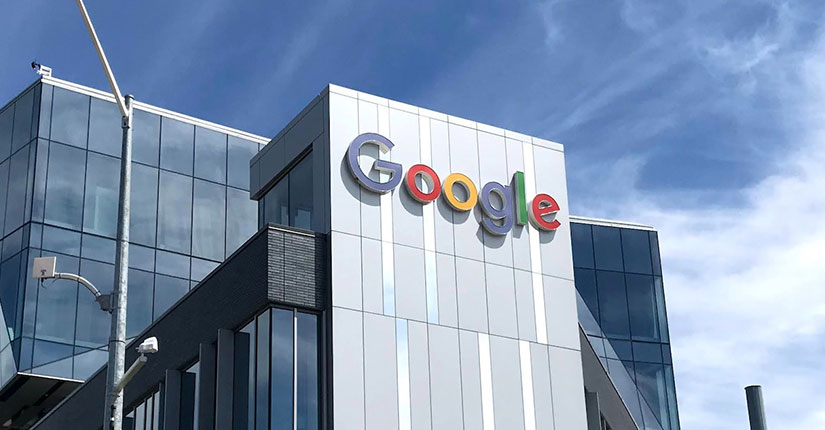In a groundbreaking legal move, Google Antitrust AdTech Trial is under scrutiny as the United States Department of Justice (DoJ) initiates an antitrust trial targeting the tech giant’s dominance in the online advertising market. This marks the second significant challenge for Google in recent months, following a prior ruling against its control of online search. The stakes are monumental, as the lawsuit threatens to dismantle parts of Google’s advertising empire, which generates the lion’s share of its revenue.
Understanding the Case Against Google
At the core of this legal battle is the accusation that Google Antitrust AdTech Trial has monopolized the ad technology (AdTech) ecosystem. The DoJ and a coalition of states argue that Google’s practices create a stranglehold over ad servers, ad networks, and ad exchanges. This leaves little room for competitors and harms the broader economy, including journalism.
Key Allegations Against Google:
- Ad Server Monopoly: Google is accused of dominating the technology that publishers use to manage and sell their ad space.
- Ad Network Control: Prosecutors allege Google has monopolized or attempted to monopolize the platforms connecting advertisers to publishers.
- Anti-Competitive Bundling: The company allegedly bundles tools for publishers and advertisers in ways that limit competition.
- Market Harm: These practices reportedly stifle innovation, inflate advertising costs, and reduce funding for independent journalism.
According to prosecutors, Google pockets up to 36% of total ad spending. They argue this is possible because Google’s integrated tools control every aspect of the ad-buying process.
The Importance of Google’s AdTech Business
Google’s advertising technology is central to its business model, contributing over 75% of its annual revenue. In 2022 alone, Google earned more than $200 billion through online ads. The AdTech ecosystem connects advertisers with publishers, and Google operates at every point in this chain—whether on the sell side, buy side, or in the middle as an exchange.
However, this dominance has raised alarms among regulators. The DoJ argues that such control gives Google an unfair advantage, allowing it to dictate terms and take a disproportionate share of ad spend. Critics assert that Google’s practices undermine the financial viability of online publishers, including news organizations.
Google’s Defense
Google Antitrust AdTech Trial has denied the allegations, arguing that its practices benefit advertisers and publishers alike. The company claims its integrated AdTech solutions ensure faster ad delivery, reduce webpage loading times, and improve security for users.
Google’s lawyers have also criticized the DoJ for focusing too heavily on desktop web advertising, which they argue is no longer dominant. They point out that consumers have shifted to mobile apps, social media, and video platforms for content consumption.
Additionally, Google emphasizes that its customers have the flexibility to work with external ad exchanges. This counters the claim that its tools are designed to lock users into its ecosystem.
What’s at Stake?
The antitrust trial against Google Antitrust AdTech Trial could have far-reaching consequences for the tech industry and online advertising. If the court rules against Google, it may be forced to divest parts of its AdTech business, significantly altering the digital advertising landscape.
A breakup of Google’s AdTech operations could lead to:
- Increased Competition: Smaller players may gain a foothold in a market currently dominated by Google.
- Lower Ad Costs: Advertisers could benefit from reduced fees, as competition drives prices down.
- Improved Support for Journalism: Publishers might retain a greater share of ad revenue, potentially revitalizing struggling news organizations.
On the flip side, a fragmented AdTech market could create inefficiencies. Advertisers and publishers may need to navigate multiple systems, lacking the seamless integration Google currently offers.
Broader Implications for Big Tech
This trial represents a broader shift in regulatory attitudes toward Big Tech. Governments worldwide are increasingly challenging companies like Google, Meta, and Amazon. They accuse these firms of exploiting their market positions to the detriment of competitors and consumers.
The outcome of this case could set a precedent for future antitrust actions, influencing how tech giants operate in the global economy.
Consumer Trends and Changing Markets
Google’s defense highlights an important aspect of the digital advertising landscape: changing consumer behavior. Over the past decade, user engagement has shifted from desktop web browsing to mobile apps, social media, and video platforms.
This trend raises questions about whether Google’s alleged monopoly in desktop-based AdTech is as significant as prosecutors claim. With platforms like Meta, TikTok, and Amazon emerging as major advertising competitors, Google’s dominance may be more nuanced than it appears.
The Road Ahead
As the trial unfolds, both sides will present evidence to make their case. The government must prove that Google’s monopoly harms competition and consumers.
For Google, the challenge will be to show that its integrated AdTech solutions result from innovation and efficiency, not anti-competitive behavior.
Conclusion
Google’s advertising monopoly trial is a pivotal moment in the fight against Big Tech dominance. While the case is complex, its outcome could reshape the digital advertising industry. It may level the playing field for competitors and benefit consumers in the long run.
Whether this leads to a breakup of Google’s AdTech empire or strengthens its position, one thing is clear: the era of unbridled dominance by tech giants is under greater scrutiny than ever before.
